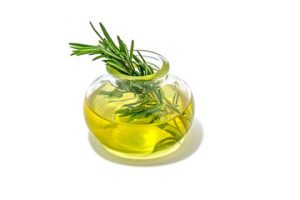
In the age of technology, advertising is everywhere. You can’t go online without the latest new ‘natural’ craze being touted as the cure all for every pest, disease and ailment known to man. This goes for our pets too. But are their truly safe, effective alternatives in this ‘natural’ market?
Natural ≠ safe. Most of these products lack any scientific evidence to prove their efficacy, and as such, the pets that use them become the unaware test subjects. Many of them are highly toxic, and can cause serious harm to our companions. We need to make sure we look beyond the hype, and internet advocates, to make sure what we are using on our pet, will actually help them, and not hinder or harm.
Garlic for Pets – What’s it Good for?
 Bottom Line
Bottom Line
“In vitro and lab animal research suggests a number of potential uses for garlic. The same level of research suggests some potential danger to garlic use in dogs and cats. There is almost no clinical research to substantiate any of the claims made for garlic use in pets. Traditional use suggests almost every plant is a cure-all, and the majority of such claims have yet to pass the test of scientific study. So at this point, hysterical claims of garlic as a “miracle food” are totally unjustified. The potential benefits deserve to be investigated, but they are mostly theoretical and unproven. The risks are probably low overall, but some individuals have been harmed by eating garlic, and we are currently unable to predict accurately which patients will be adversely affected.”
Read more: http://skeptvet.com/Blog/2012/02/garlic-for-pets-whats-it-good-for/
Essential oils for fleas and ticks? Not so fast.

A few of the types of oils you may come across, as touted for the efficacy for pest control for your pets.
D-limonene
D-limonene is derived from orange pulp and has minimal to moderate efficacy to control fleas. If diluted properly, it has a high margin of safety; if not, it can cause dermatitis, oral irritation, lethargy, vomiting, salivation, ataxia and muscle tremors. This essential oil can penetrate the skin and cause peripheral vasodilation, leading to hypotension and hypothermia.
Melaleuca oil
Melaleuca oil is an essential oil from the Australian tea tree, Melaleuca alternifolia. It does have antibacterial and antifungal properties at higher concentrations, but the products labeled for use in animals are 5% or less, and the efficacy of this agent to repel or kill fleas has not been established. Inappropriate application of Melaleuca products or products not intended for external use may result in ataxia, weakness, tremors and death. Read moreHERE.
Pennyroyal oil
If you have been on Dr. Google, you may have read that pennyroyal oil is effective against fleas and ticks. This has not been proven, but toxicity definitely has. Pennyroyal oil, derived from the leaves and flowers of the pennyroyal plant (also called squaw mint or mosquito plant), contains a volatile compound called pulegone, which is responsible for the plant’s toxic effects. If pennyroyal is applied directly to an animal it can cause depression, vomiting, hepatic necrosis, diarrhea, epistaxis, seizures and death. Pennyroyal oil should never be used on animals.
What to do if your pet is exposed
With essential oils, treatment consists of getting the oil off the animal and providing fluids and supportive care. Keep in mind that if the oils have been applied to irritated or broken skin, the risk of toxicosis is higher due to increased systemic absorption. Be sure to call your veterinarian right away, we don’t want to prolong exposure. The faster you act, the faster we can help your pet!
Info from Dr. Wismer (DVM, DABT, DABVT, medical director for the ASPCA Animal Poison Control Center in Urbana, Illinois).
Diatomaceous Earth Is Not An Intestinal Parastite Treatment.

We all know there is a lot of misinformation on the internet. Touting diatomaceous earth as an effective or reliable internal parasite preventative or treatment is an example. The truth is, DE does not protect against or treat internal parasites.
What is DE?
DE, or diatomaceous earth, is a siliceous sedimentary rock containing the fossilized skeletal remains of diatoms. Diatoms are a unicellular algae, constituting much of the phytoplankton in the ocean. DE has a variety of uses, including as an abrasive, a filter, an anticaking agent, and an insecticide.
How does DE work as an insecticide?
DE works mechanically, rather than chemically, to kill insects. It has sharp, abrasive edges which damage the exoskeleton, and it dries out the insect by absorbing fats and oils from the cuticle of the exoskeleton, causing desiccation, dehydration, and death. It remains effective as long as it is kept dry.
This means that DE can be used to potentially get rid of fleas, ticks, and mites in the environment (but not on your pet). DE kills insects, not worms.
To review: DE kills arthropods by damaging their exoskeleton. Arthropods are defined as invertebrates that possess an exoskeleton, including insects and spiders. Intestinal parasites like roundworms or tapeworms are not arthropods, and they do not possess an exoskeleton. This means DE’s abrasive action does not work on worms like it would on insects.
Besides, if DE was abrasive enough to kill worms inside your dog’s intestines, it would also be damaging your dog’s delicate intestinal lining, causing inflammation and irritation!
DE must be kept dry in order to work. The higher the moisture or humidity, the less effective DE becomes. This means that it will not be very effective inside the digestive system of an animal, which is obviously not dry.
Also note, studies have consistently shown no difference between DE and control groups. The science is clear: DE is not effective against intestinal parasites.
Safety concerns
Although DE is touted by many as 100% safe, that is not completely true. Excessive inhalation of DE can be dangerous and has been associated with lung cancer. Do not allow yourself or your animals to inhale DE or get it in or around the eyes. Using DE on dog’s coats to prevent or treat fleas, ticks, or mites, can cause the cost to dry out and irritate the skin. It also is not very effective.
Environmental concerns
Diatomaceous earth is unlikely to provide practical or satisfactory flea control outdoors, based on laboratory evaluations at Texas AgriLife Extension. Although DE may kill insects in the environment, keep in mind that it is not selective in the types of insects it kills. Using it indiscriminately may kill more beneficial organisms as well, including important pollinators like bees.
Conclusion
DE does a good job of killing insects in dry environments. But its use for parasites ends there; it is not an effective preventative or treatment for intestinal parasites. Please don’t rely on ineffective treatments – doing so would be allowing your dog to suffer unnecessarily, when there are safe and effective dewormers available that will get your dog healthy again much faster, and much more reliably.
